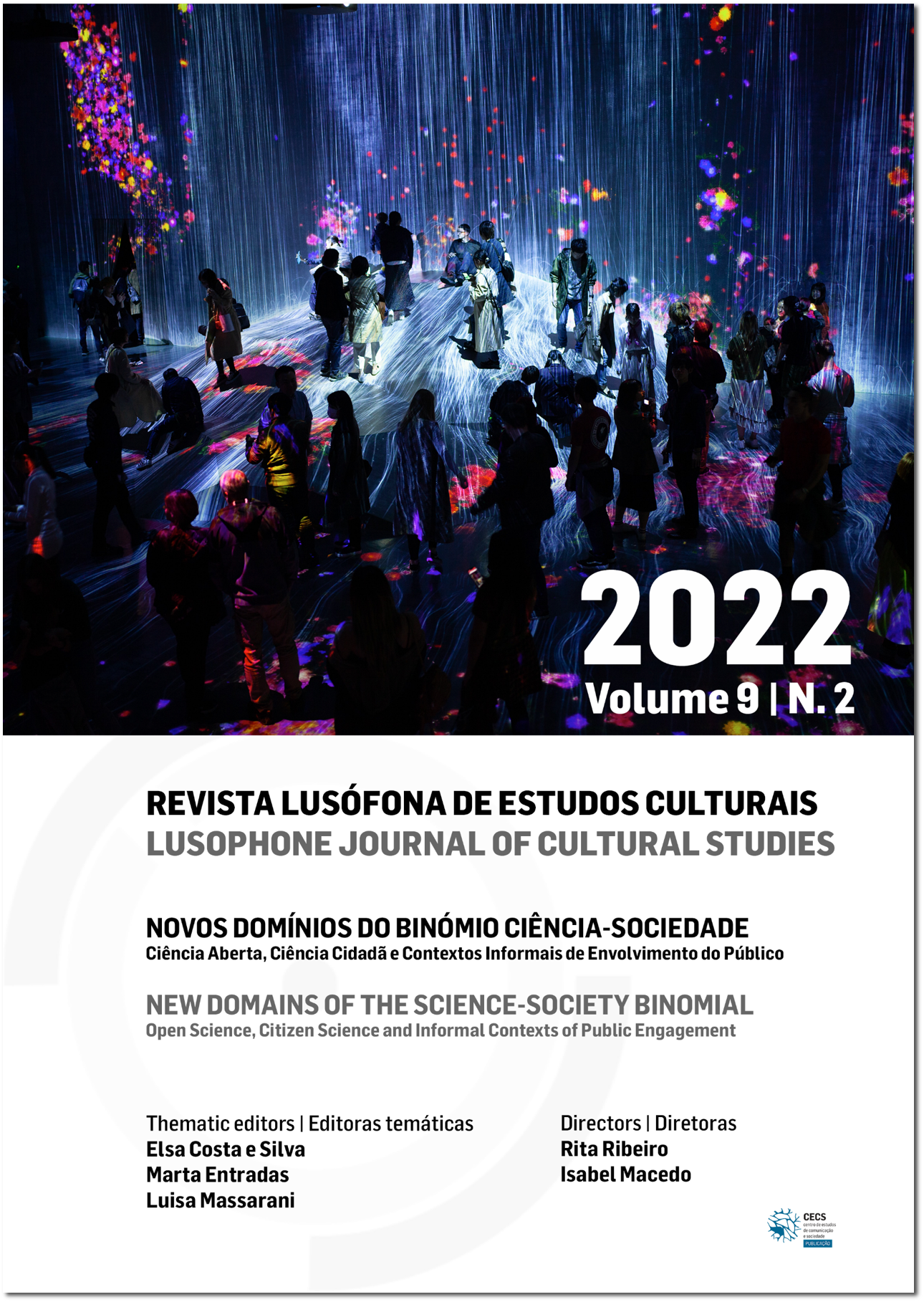New Domains of the Science-Society Binomial: Open Science, Citizen Science and Informal Contexts of Public Engagement
DOI:
https://doi.org/10.21814/rlec.4483Downloads
References
Arnstein, S. R. (1969). A ladder of citizen participation. Journal of the American Institute of Planners, 35, 216–224. https://doi.org/10.1080/01944366908977225
Bonney, R., Shirk, J. L., Phillips, T. B., Wiggins, A., Ballard, H. L., Miller-Rushing, A. J., & Parrish, J. K. (2014). Next steps for citizen science. Science, 343(6178), 1436–1437. https://doi.org/10.1126/science.1251554
Chubin, D. E. (1985). Open science and closed science: Tradeoffs in a democracy. Science, Technology, & Human Values, 10(2), 73–80. https://doi.org/10.1177/016224398501000211
Irwin, A. (1995). Citizen science: A study of people, expertise and sustainable development. Routledge.
Lave, J., & Wenger, E. (1991). Situated learning: Legitimate peripheral participation. Cambridge University Press.
United Nations Educational, Scientific and Cultural Organization. (2020). First draft of the UNESCO recommendation on open science. https://unesdoc.unesco.org/ark:/48223/pf0000374837
Downloads
Published
How to Cite
Issue
Section
License
Copyright (c) 2022 Elsa Costa e Silva, Marta Entradas, Luisa Massarani

This work is licensed under a Creative Commons Attribution 4.0 International License.
Authors own the copyright, providing the journal with the right of first publication. The work is licensed under a Creative Commons - Atribuição 4.0 Internacional License.








